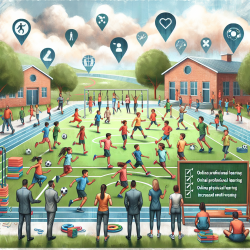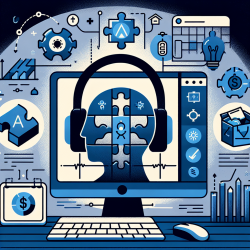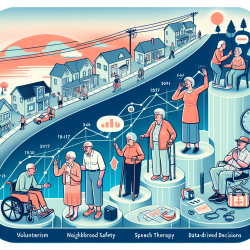Physical inactivity among children is a growing concern worldwide. Schools play a crucial role in promoting physical activity, yet many fail to provide sufficient opportunities for students to be active. The iPLAY study—Internet-based Professional Learning to help teachers support Activity in Youth—offers an innovative approach to address this challenge by empowering teachers through online professional learning.
The iPLAY Intervention: An Overview
The iPLAY study aims to modify and scale up an existing intervention that has proven effective in enhancing children's physical activity, movement skills, and cardiorespiratory fitness. By focusing on online delivery, the study seeks to increase the reach and sustainability of its interventions across schools.
Key Components of the iPLAY Intervention
- Quality Physical Education and School Sport: Teachers are trained to deliver structured PE lessons that are supportive, active, autonomous, fair, and enjoyable.
- Classroom Movement Breaks: Short energizer activities are integrated into the school day to keep students active.
- Physically Active Homework: Homework assignments include physical activities to encourage movement outside school hours.
- Active Playgrounds: Strategies are implemented to ensure children remain active during recess and lunch breaks.
- Community Physical Activity Links: Schools partner with local sports organizations to offer after-school programs.
- Parent/Caregiver Engagement: Regular communication with parents encourages support for physical activity initiatives at home.
The Role of Online Professional Learning
A significant aspect of the iPLAY study is its emphasis on online professional learning for teachers. This approach provides flexibility and accessibility, allowing teachers to engage with training materials at their own pace. The program includes a combination of face-to-face workshops and online modules designed to enhance teachers' confidence and competence in delivering quality physical education.
The Benefits of Online Learning
- Scalability: Online delivery allows for widespread implementation across diverse geographic locations.
- Sustainability: Continuous access to resources ensures that teachers can revisit materials as needed.
- Cost-Effectiveness: Reduces travel and accommodation costs associated with traditional training methods.
Implementing iPLAY in Your School
If you're a practitioner looking to enhance physical activity programs in your school, consider adopting strategies from the iPLAY study. Start by assessing your current PE curriculum and identify areas where movement can be integrated throughout the school day. Engage with parents and local community organizations to create a supportive environment for active lifestyles.
The success of the iPLAY intervention highlights the importance of multi-component approaches that involve various stakeholders, including teachers, students, parents, and community partners. By fostering a culture of physical activity within schools, we can improve not only students' fitness but also their academic performance and overall well-being.
Encouraging Further Research
The findings from the iPLAY study provide a valuable framework for future research on school-based physical activity interventions. Practitioners are encouraged to explore additional ways to integrate technology into educational programs and measure their impact on student health outcomes.
To read the original research paper, please follow this link: Scaling-up an efficacious school-based physical activity intervention: Study protocol for the ‘Internet-based Professional Learning to help teachers support Activity in Youth’ (iPLAY) cluster randomized controlled trial and scale-up implementation evaluation.










